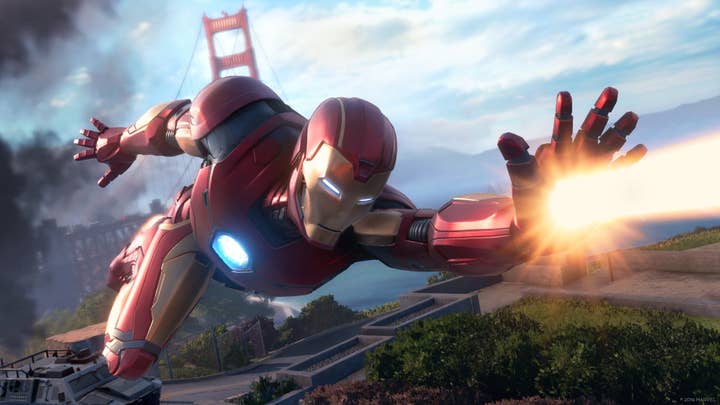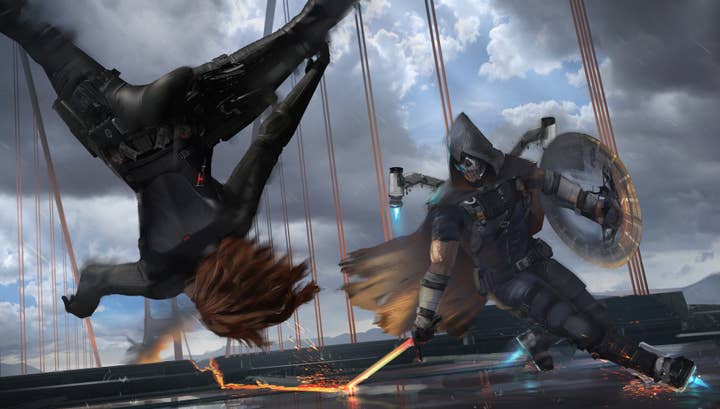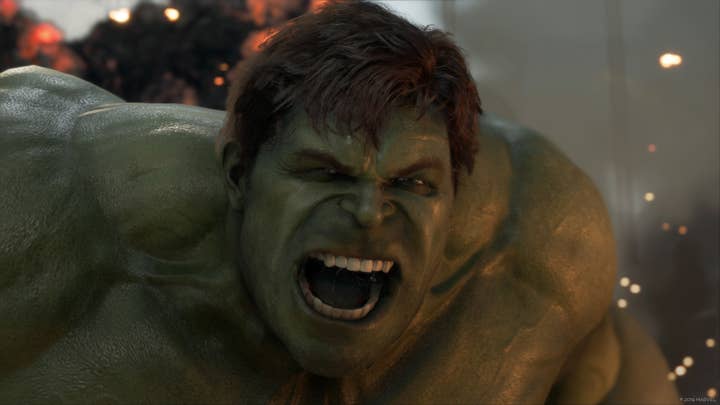Marvel's Avengers shows how a “beta” can be a pitfall | Opinion
Early reviews express surprise at the full game being good after disappointing "beta" weekends -- suggesting a gigantic failure on the publisher side
On paper, a game based on Marvel's Avengers IP should be a shoo-in for the year's best-seller charts. Arguably the most popular character franchise in the world -- riding high off the back of the Infinity War and Endgame movies, which broke box office records all over the globe -- converted into a high-budget, multiplatform game by a hugely respected developer. Launching, no less, at a time when the Marvel Cinematic Universe has effectively taken a year off cinema releases due to the pandemic, thus whetting appetites even further for fresh content in this universe -- this game ought by rights to be one of the biggest entertainment "events" of an admittedly diminished 2020.
Instead, there's an odd malaise around Crystal Dynamics' Avengers game -- one that's been lifted somewhat this week by the sudden appearance of a number of articles, all slightly bewildered in tone, from journalists and insiders finally getting to play the complete game and discovering, to their surprise, that it doesn't actually suck. That's not good.
There's a strong sense of lowered expectations, at best, that's clear from even a casual look around social media
I mean, it's good that the game apparently doesn't suck, of course -- but it's extremely not good that we're days away from launch and people are announcing "wait, this actually doesn't suck" in surprised tones. If only it were as simple as attributing this to jaded reviewers approaching the game with excessive cynicism. But there's a strong sense of lowered expectations, at best, that's clear from even a casual look around social media to see what the consumer buzz for the game is like.
How has this happened? How has a game based on what's probably the single most valuable IP in the world right now ended up seemingly underselling its merits to the public so badly that it may even be undermining its own launch performance? There are a number of places that fingers might be pointed; the choices made with regard to what aspects of the game to highlight and focus on have been a bit baffling right from the very first trailers and demonstrations, for example. Yet I'd argue that nothing sums up the problems, or explains the lowered expectations Marvel's Avengers is going to have to fight upstream against, quite so much as the "public beta" event that ran over a handful of August weekends.

Publisher Square Enix has been puffing out its chest over the "success" of the beta for the past few days, announcing that it broke records on the PlayStation platform and was played by some six million people across the various platforms for which it was available. That's pretty impressive for sure, though not exactly surprising given the strength of the IP we're talking about here.
Let's directly address the elephant in the room, though; did those six million people get a good experience of the game? If not -- if they instead got a shallow, vacuous and repetitive slice of an experience that loses much of its enjoyment once shorn from its wider context -- then six million players in your beta isn't an achievement, it's a mountain of negative public sentiment you're going to have to climb just to get back to level ground.
I cancelled my pre-order for Marvel's Avengers after playing the beta a little. I doubt I was alone in this
Cards on the table -- I cancelled my pre-order for Marvel's Avengers after playing the beta a little. I doubt I was alone in this. I'm right in the middle of the Venn diagram of Marvel / MCU fans and Destiny-style loot shooter fans, so this game ought to be one I want injected directly into my veins, but the experience of the beta just felt unsatisfactory from both angles -- dull as a loot shooter, totally mismatched with the IP as a Marvel game. I had misgivings even before the beta, but just a couple of hours in the game as offered over one of the beta weekends seemed like confirmation of everything I'd feared could go wrong.
Stepping back for a second, the whole culture of having "beta weekends" for upcoming games is... weird. These events may yield some useful data points for developers who want a large-scale stress test before launch day, but the real impetus for them definitely comes from the marketing team. They've become practically de rigeur for any online title, whether there's any actual practical justification for them or not; their value isn't as a technical beta test, but as a time-limited demo that creates an artificial sense of exclusivity and involvement for the players who have a chance to try the game.
It's cooler to say you were "in the beta" than you "played the demo", I guess. But this also presents a potential headache for developers, because once something like this is baked into the marketing plan, it's extremely hard to remove. While for some games a beta experience may build excitement, for others the "beta" ends up by its very nature being a weirdly hollow, stripped down experience.

The 180 degree turn some media outlets are making with Avengers is because they're finally getting to play what appears, by all accounts, to be an extremely accomplished and fun campaign experience -- something that was absent from the generic and repetitive game players experienced in the "beta". It's too early to say whether that campaign experience -- which most players will get through before engaging with the online game -- will contextualise the loot-shooter online mode to the point of making it notably better, but it's fair to say that a quality campaign is, or ought to be, the core selling point of a game based on the most popular fictional characters in the world.
A quality campaign ought to be the core selling point of a game based on the most popular fictional characters in the world
The beta didn't show us any of that. In failing to do so it ended up tacitly suggesting that, through act of omission, Crystal Dynamics had left much of it on the table, reducing characters people have connected with through films and comics for years into costumes and catchphrases pasted over a fairly standard genre template.
I don't have any deep insight into how Marvel's Avengers was created, but I do wonder if there's a fundamental disconnect between the game that Crystal Dynamics were excited to make -- a seemingly great, character-driven campaign, which will hopefully lead into some strong ongoing storytelling as the online aspect evolves -- and the game that Square Enix was excited to monetise, namely the Destiny-esque loot shooter that was from the outset a pretty questionable fit for the Marvel IP. If that's correct, the positive stories emerging this week are from players suddenly getting to see the former after months of a publisher marketing campaign, capped off with the uninspiring beta, that wrong-headedly emphasised the latter and gave everyone the apparently false impression that this game is bad.
The ultimate point here is that publishers need to crank their necks in sometimes and think about the game consumers want to play rather than focusing too intently on the product or service they'd really like consumers to pay for. People attached to the Marvel characters are predisposed to be interested in a game like Avengers because they want the experience of playing as Thor, or Iron Man, or Black Widow; you can carefully frame the game to develop their interest such that they end up having fun finding good loot to equip on Thor or interesting cosmetic items to pimp out Tony Stark's armour, but that's not the intrinsic appeal right out the gate.
The context -- the story, the world, the characterisation -- is incredibly important in a way that it generally isn't for games like this, precisely because of the IP; because the Avengers is a character-based franchise. Focusing the communication for the game around its loot-shooter aspects isn't going to resonate for a single second with an audience who are pretty sure they didn't miss a scene in Avengers: Endgame where Captain America smacks an alien soldier and then takes a battlefield time-out to put on the new pair of pants it just dropped.
It will be deeply unfortunate if the seemingly good game that Crystal Dynamics has made gets buried under the weight of the not terribly interesting game that Square Enix wanted it to be instead, and the insistence on doing an online "beta" rather than an old-fashioned demo that might have properly built excitement by showcasing the game's storytelling and characterisation chops. With any luck, quality will out and the reviews and word of mouth will end up doing the game justice -- but thus far, this stands as an important and sobering lesson for any marketing planner or product manager that ever finds themselves blessed with the opportunity to work with such a beloved IP.

